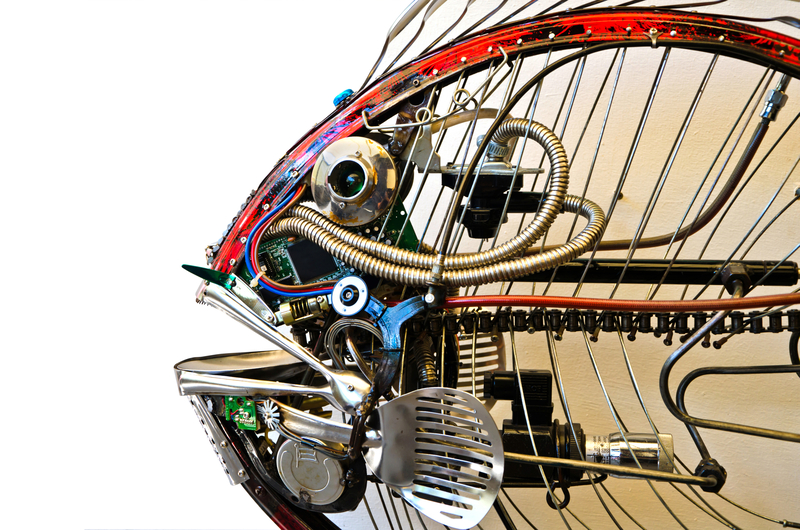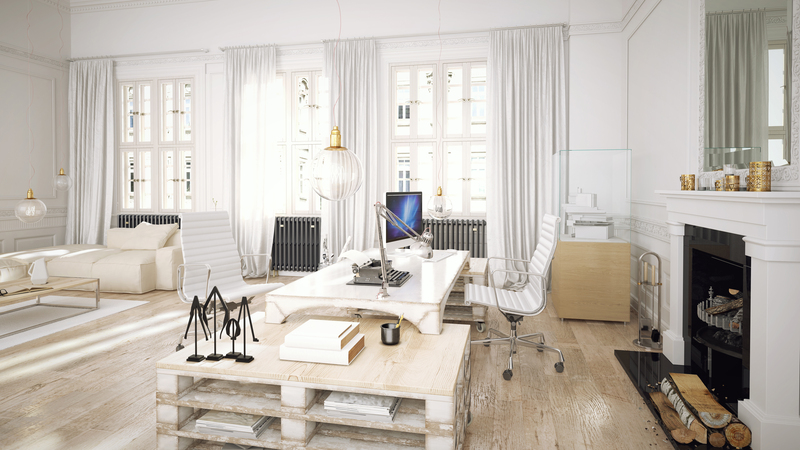Redefining Spaces: The Magic of Decluttering & Minimalism
In today's fast-paced world, our living and working environments often become overwhelmed with excess belongings, digital distractions, and unnecessary clutter. For many, the journey toward minimalism and effective decluttering is not just about cleaning up physical spaces--it's about transforming mental well-being, unlocking creativity, and redefining our relationship with the things we own. Discover how the magic of decluttering and minimalism can redefine your spaces and lead you to a more intentional, fulfilling lifestyle.
Understanding the Magic of Decluttering
Decluttering transcends simply tidying up or discarding unwanted items. It is a systematic process of evaluating your environment and making mindful decisions about what to keep, donate, or discard. The act of decluttering is grounded in the belief that less is more, and that a clear, organized space fosters clarity of mind and purpose. By creating room in your physical world, you simultaneously create space for your personal growth, happiness, and success.
Key Benefits of Decluttering
- Reduces Stress: Cluttered spaces can cause anxiety and overwhelm. An organized space soothes the mind and body.
- Boosts Productivity: Cleaner environments enhance focus and efficiency at work and home.
- Improves Health: Eliminating dust-collecting clutter reduces allergens and creates a healthier living space.
- Enhances Relationships: Simpler surroundings foster better interactions and communication between family or housemates.
- Promotes Financial Clarity: Decluttering finances, alongside physical items, helps you save money and make more intentional purchases.
Essential Steps to Effective Decluttering
- Set Clear Goals: Know why you want to declutter. Is it for a calmer home, easier cleaning, better focus, or improved well-being?
- Start Small: Begin with a single drawer or shelf. Gradually extend your efforts to larger areas.
- Sort and Categorize: Group items into 'keep', 'donate/sell', and 'discard' categories.
- Commit to Letting Go: Be honest about what truly adds value to your life. Practice non-attachment.
- Maintain Regularly: Schedule periodic check-ins to keep clutter at bay and reinforce your new habits.

Minimalism: More Than an Aesthetic
Minimalism is often visualized as sleek, monochrome interiors with bare walls and minimal furniture. However, the philosophy of minimalism extends much deeper--it is about curating your environment to reflect your values, passions, and priorities. Minimalism guides you to live intentionally, keeping only what serves a purpose or brings genuine joy. This mindset challenges consumer culture and encourages mindful living.
Principles of Minimalism
- Purposeful Possessions: Every item has a use or brings happiness.
- Quality over Quantity: Fewer, high-quality items replace many mediocre ones.
- Intentional Spaces: Each room and corner is thoughtfully designed to support your lifestyle.
- Mindful Consumption: Consider purchases carefully; avoid impulse buying and unnecessary accumulation.
- Appreciation of Simplicity: Beauty is found in uncluttered, serene environments.
The Life-Changing Impact of Minimalism
Embracing minimalism isn't about depriving yourself of comforts. Instead, it's about prioritizing what truly matters. By stripping away excess, you make room for personal growth, creativity, deeper relationships, and financial freedom.
- Mental Clarity: Simpler spaces allow for quieter, less distracted minds.
- Time Efficiency: Less time is spent cleaning, organizing, or searching for belongings.
- Environmental Impact: Reduced consumption leads to a lighter ecological footprint.
- Freedom & Flexibility: Owning less makes moving or traveling easier.
- Intentional Living: Each day is shaped by conscious, meaningful choices.
Decluttering & Minimalism in Everyday Life
Home Transformation
Applying decluttering and minimalism to your living spaces can be truly transformative. From open-concept kitchens with only essential tools to bedrooms with minimal distractions, the possibilities are endless. Even small apartments can be elevated into havens of peace and order.
- Living Room: Opt for multi-functional furniture. Limit decorations to a few meaningful pieces for a serene atmosphere.
- Bedroom: Remove unnecessary clothing or electronics. Embrace soft, neutral tones and natural light.
- Kitchen: Keep only utensils you use regularly. Store food in clear, labelled containers for quick access.
- Storage Spaces: Use baskets or bins to organize seasonal or seldom-used items out of sight.
Digital Decluttering
Digital clutter--overloaded emails, countless files, countless notifications--can also weigh us down. Apply the principles of minimalism to your digital life for a more focused, less distracted daily experience.
- Organize Files: Sort used and unused files, deleting what is no longer needed.
- Manage Inbox: Unsubscribe from unnecessary emails and organize messages with folders or labels.
- Limit Notifications: Turn off seldom-used app alerts to minimize distractions.
- Declutter Devices: Uninstall unused apps and regularly review your downloads.
Workplace Minimalism
Redefining your workspace can greatly increase productivity and satisfaction. A minimalist desk setup inspires clarity and focus.
- Keep only essential tools--monitor, laptop, notepad, favorite pen.
- Use cable organizers to maintain a tidy surface.
- Store reference materials digitally where possible.
- Personalize with one or two meaningful objects to prevent coldness.
Minimalism & Decluttering: Overcoming Challenges
The journey towards a decluttered, minimalist lifestyle can undoubtedly present challenges. Emotional attachment, fear of regret, and societal pressure to own more often impede progress. Here are practical strategies to help you stay on course:
- Start With Non-Sentimental Items: Practicing with less emotionally-charged belongings builds confidence for harder decisions later.
- Visualize Your Ideal Space: Use vision boards or design apps to inspire and maintain motivation.
- Adopt a 'One In, One Out' Rule: For every new item, remove an old one to uphold balance.
- Seek Support: Share your goals with family or friends who can keep you accountable.
- Reflect Often: Journaling helps you process your journey and solidify your reasons for embracing minimalism.
Redefining Spaces: Minimalism Beyond the Home
While minimalism and decluttering are often associated with home organization, their influence stretches into all areas of life. Minimalist travel--packing only what you truly need--yields richer experiences and less logistical stress. Applying minimalism to time management, focusing on meaningful activities instead of overwhelming your schedule, also enhances quality of life.
- Minimalist Fashion: Build a capsule wardrobe with versatile, timeless pieces that always make you feel your best.
- Minimalist Finances: Regularly review and simplify financial commitments. Focus spending on what brings value and happiness.
- Minimalist Relationships: Prioritize connections and activities that nurture your life. Let go of draining commitments or toxic interactions.
- Sustainable Minimalism: Mindfully reduce consumption by choosing eco-friendly, durable products and upcycling when possible.
The Psychological Power of Minimalism
Research increasingly highlights the connection between one's physical environment and mental state. A decluttered, minimalist space signals safety and control to the brain, supporting improved mental health and overall well-being. Minimalism encourages self-reflection, self-awareness, and emotional resilience.
- Reduced Anxiety: Clean, ordered environments help quiet the mind.
- Greater Focus: With fewer distractions, it's easier to pursue what matters most.
- Increased Satisfaction: Mindfully curated belongings and routines create lasting contentment.

Getting Started: Your Minimalist Journey
Simple Steps to Embrace the Magic of Decluttering
- Define Your 'Why': Articulate your reasons for decluttering and pursuing minimalism--write them down!
- Set Achievable Goals: Break your larger vision into manageable, actionable tasks.
- Commit to Regular Practice: Allocate time weekly for decluttering and simplifying.
- Celebrate Progress: Acknowledge and reward yourself as you reach milestones.
- Stay Inspired: Follow minimalist blogs, books, and documentaries to maintain motivation.
Recommended Resources for Minimalist Inspiration
- Books: "The Life-Changing Magic of Tidying Up" by Marie Kondo; "Essentialism" by Greg McKeown; "Goodbye, Things" by Fumio Sasaki
- Podcasts: The Minimalists; Slow Home Podcast; The Art of Decluttering
- Documentaries: "Minimalism: A Documentary About the Important Things"
- Websites: Becoming Minimalist; The Minimalists
Conclusion: The Magic Unveiled
The magic of decluttering and minimalism lies in its ability to bring harmony, authenticity, and peace to our lives. By redefining your spaces--both physical and mental--you embark on a journey to clarity, freedom, and intentional living. Whether you seek serenity in your home, efficiency at work, or deeper satisfaction in daily life, the principles of minimalism offer a powerful pathway. In a world of 'more', may you boldly choose 'less, but better'.